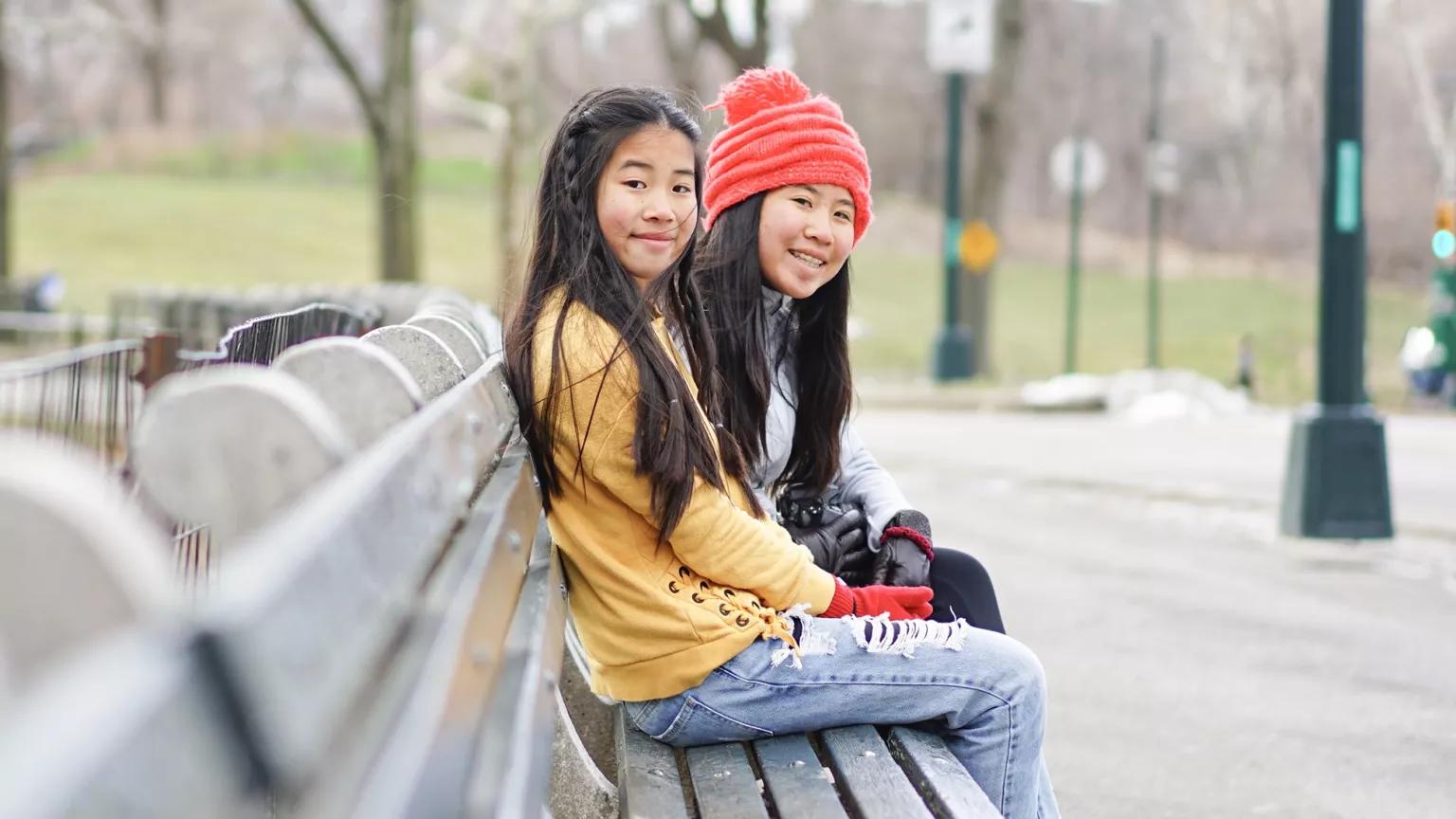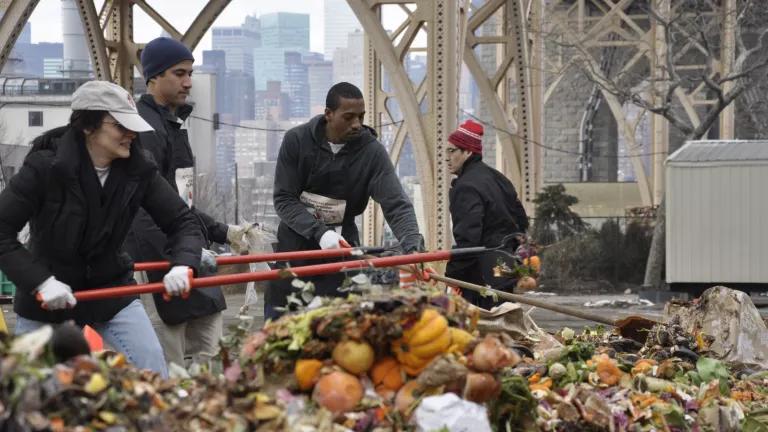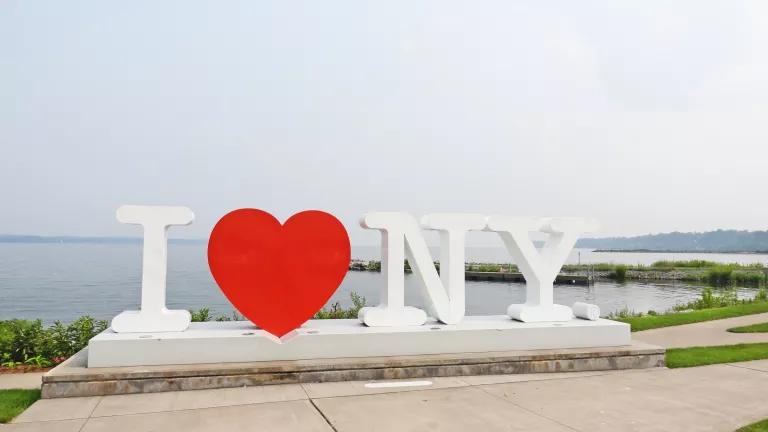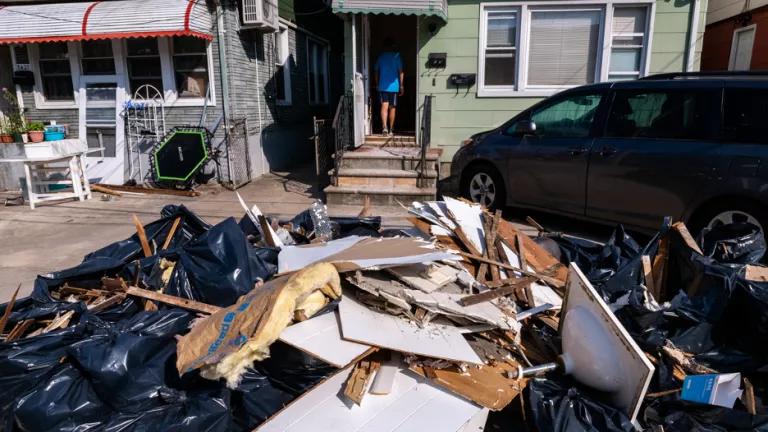A Better New York: Clean, Healthy, and Fair
Each of New York State’s nearly 20 million residents deserves clean air and water, efficient and accessible transportation, safe housing, and healthy food.

What's at Stake
No matter the season, New Yorkers are dealing with rampant pollution in our air and water—with the impacts of climate change making things worse in the form of extreme heat and devastating floods. And some of our neighbors are hurting more than others: A long history of racist public policies has disproportionately placed the burden of pollution, waste, and climate-related disasters on Black, Latino, Indigenous, and Asian and Pacific Islander communities.
We must do better.
NRDC is working with residents, environmental justice groups, labor groups, elected officials, health advocates, and businesses to create a clean, healthy, and fair New York for all. But we also need you on board.
See our wins from New York’s 2022 legislative session—and our plans to push the state’s leadership on climate action.
A Fossil-Fuel Free New York
The extreme heat, deadly floods, and devastating hurricanes hurting New Yorkers are inextricably linked to dirty fossil energy. Yet the oil and gas industry has kept us dependent on these carbon-emitting, health-harming fuels—bending over backward to delay the inevitable transition to clean energy.
Even worse, the burning of coal, gasoline, and diesel is responsible for one of the leading causes of illness and premature death: air pollution. And because highways and polluting facilities have historically been built near low-income communities and communities of color, these New Yorkers experience far worse health outcomes.
"Stronger state appliance standards and building codes will not only create huge energy and greenhouse gas savings, they will also save New Yorkers billions of dollars on their energy and water bills."
Samantha Wilt, Climate & Clean Energy Program, NRDC
New York can do better by ending our addiction to fossil fuels and leading the region in the transition to a clean energy economy. With pressure from the public and advocates like you, this transition will fight the climate crisis and improve public health, provide new jobs, and result in lower utility costs for all New Yorkers.
A Toxic-Free New York
Dangerous toxics—from pesticides in our food to lead in our drinking water—are posing serious harm to the health of New Yorkers. Exposure to these toxics is especially dangerous for children, whose development can be affected with long-lasting consequences. And research shows that low-income communities and communities of color are exposed to toxics at even higher rates than wealthier and white populations, making this a matter of environmental justice.
New York can do better by putting the health of people ahead of chemical industry interests—always. That includes getting lead pipes out of every home and school and passing legislation that reduces the use of toxics that harm us and our environment. After all, everyone deserves access to affordable healthy food, clean air, and safe water—regardless of skin color, income, or zip code.
A Waste-Free New York City
New York City is one of the most wasteful cities in the entire world. What’s worse is that the trash is transported to other states, where communities (usually low-income and communities of color) are left to deal with the toxic air pollution caused by the incineration of New York City’s exported trash. Meanwhile, much of that waste could be composted or recycled. (Find a compost site near you through GrowNYC.)
The waste crisis isn’t limited to garbage. Right now, New Yorkers are still reliant on inefficient fossil fuels to power and heat buildings. And with limited space and a legacy of toxic industries to reconcile with, the city must finally clean up polluted sites. The good news is we have the creative solutions to keep our communities healthy and transition to a clean energy economy.
New York City can do better by cutting waste, rethinking land use, and innovating in the clean energy sector while providing a national model for sustainable living and environmental justice.
Join Us
Sign up to be the first to know about actions you can take to ensure a better New York.
Related Content











